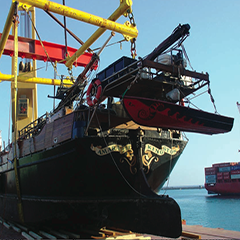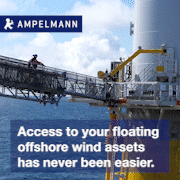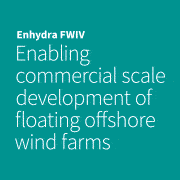A company that deserves to be publically applauded for its part in the recent rescue operation where more than 300 Syrian refugees were found floating in fishing boats off the Italian-Sicilian coast, BBC Chartering is one of this magazine’s most regular contributors. We caught up, once again, with Senior Vice President Raymond Fisch…
PES: We’re hearing that the offshore market is powering ahead in Europe right now. Does this fit in with your on-the-ground (or ‘in-the-water’!) assessment of the market since the beginning of the year?
Raymond Fisch: The market for offshore-wind developments in Europe is again showing some atmosphere for departure. From a ship-owner /operator perspective, we observe that this (mostly regional) market is currently developing into two directions. First, there is a clear focus on specialised assets (e.g. for installation) and second on small and local coaster tonnage. In any case, the employment for MPP/HL tonnage such as ours would ask for very specific maritime transport and storage concepts also involving the heavy lifting gear we offer with our ships.
For this reason our activity in this market is currently comparably low. But we are convinced that once ‘schedule issues’ on projects increase in importance over the current focus on ‘cost issues,’ there will also arise a need for enhanced, intelligent logistic solutions involving MMP/HL fleet capabilities, such as ours to add value.
PES: Effective communication seems to be a watchword for your company. Can you explain a little about your culture in this regard?
RF: Anyone communicates permanently, be it verbal or non-verbal. When things do not go the way we want them to go, we may often say that there is a ‘lack of communication’; but what we actually mean is that there is a lack of (constructive) exchange of ideas and goals concerning what we want to achieve, and how we can contribute.
You can imagine that sometimes this is wanted and sometimes not. If wanted, we facilitate communication, i.e. by trying to understand our counterparts, by learning about our interaction, and by adopting our behavior respectively so we can work towards a common goal.




























